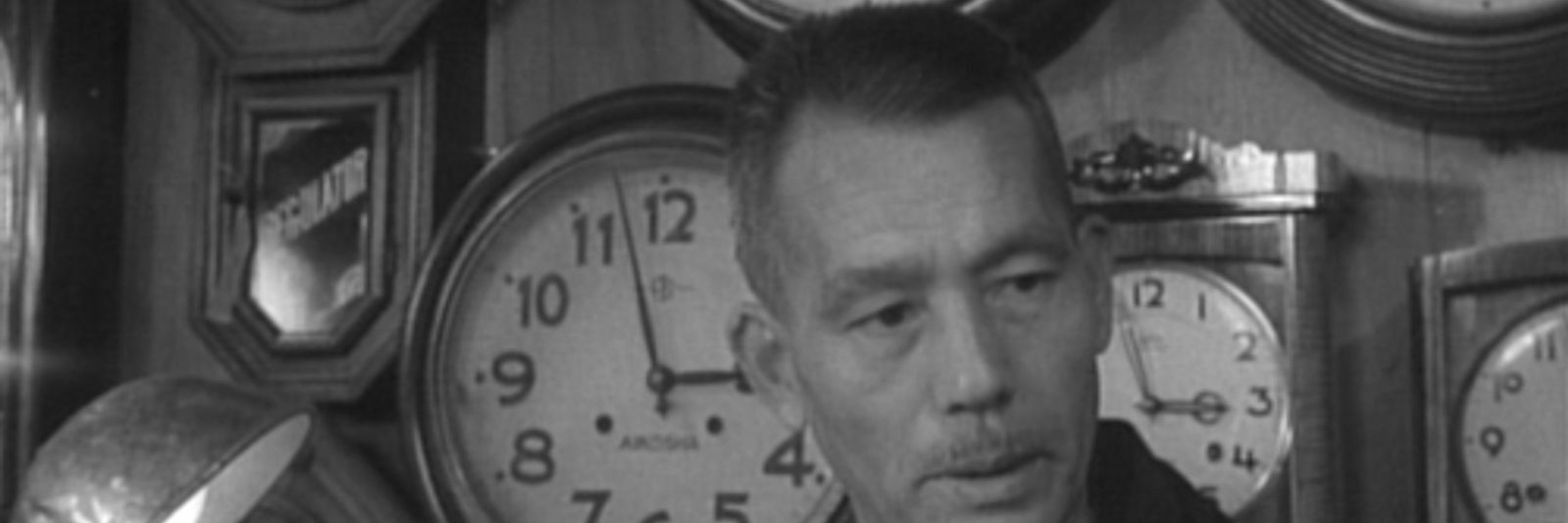Calligraphy and Propaganda
Chishu Ryu said “Ozu-san didn’t make any heroic movie during the war”. This is true. He did not make any combat films, heroic military action films nor pseudo-historical drama to support totalitarian political agenda. But it does not mean he was making films in vacuum. “I was born, but … (1932)” may seem the last place for anyone to find any war propaganda, but, remember, it was filmed in 1932, the year of Shanghai Incident. During the scene in the classroom, you can see a rather large frame of Japanese calligraphy on the wall. It says “Bakudan Sanyu-shi”, or “Three …


